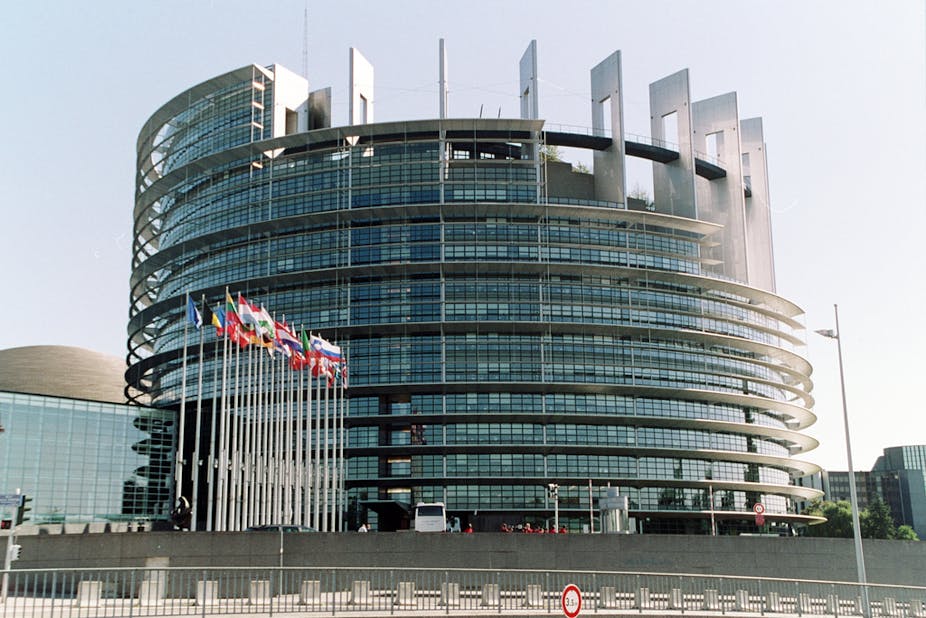Until the 1980s, the SNP was opposed to membership of the European Community/Union, although there was a small pro-European element within the party.
In the late 1980s – at the same time as the Labour Party – it turned towards Europe. Since then, the EU has become a key supporting framework for the independence project.
The SNP manifesto devotes little space to Europe. It does commit the SNP unequivocally to Europe, and to opposing withdrawal. Unlike the Labour Party, it does not explicitly oppose having an EU referendum, but insists on a double-majority provision, so that withdrawal from the EU would have to be supported by all four home nations. This would suggest that, should England vote to leave, it could be prevented by Scotland, which seems politically difficult, as England could claim that it too has its national rights, and English Conservatives would be outraged.
#indyref2?
More likely, an English vote to leave and a Scottish vote to stay would provoke another referendum, since Scotland could only stay in by becoming a separate member state and rejoining. Presumably, in that scenario, we would be spared the warnings from people like former European Commission president José Manuel Barroso that Scotland could be left in the cold.
But the SNP does not go down this road in its manifesto, no doubt because it does not want to talk about another referendum just now. Opinion polls have shown that a vote in England to withdraw from the EU while Scotland votes to stay in is not probable, but is definitely possible.
Lack of policy preferences
The second theme is Scotland’s current position in relation to Europe, where the manifesto repeats Scottish government demands for more guaranteed representation in European decision making. This includes a right to participate in the Council of Ministers – which represents the executive governments of the EU’s member states – rather than attend by invitation.
There is less about what the SNP’s policy preferences might be. The manifesto does say that the SNP supports the European Arrest Warrant – but even the Conservatives have conceded that. There is nothing on the wider issues under justice and home affairs; a largely devolved matter about which the UK parties have been somewhat confused. The SNP is clearer about freedom of movement, which it supports.
On its vision for a future Europe, the SNP is largely silent. The Conservatives and, to a lesser extent, Labour seem content with a looser Europe, reduced, in the case of the Tories, to the single market. One might have expected more from the SNP on its vision of Europe and what Scotland might contribute to a better and stronger union. Its failure to be bolder reminds us that euroscepticism is not a purely English phenomenon, but something that all parties have to take into account.

